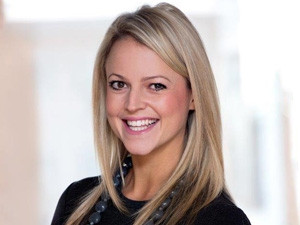
Two writers at men's magazine FHM were suspended yesterday for making comments about correctional rape on Facebook.
The magazine's features editor, Max Barashenkov, and editorial assistant Montle Moorosi, unleashed a social media storm, after engaging in online banter about correctional rape.
The incident started with a status update on Barashenkov's Facebook page, stating: "I propose correctional rape and sterilisation for any white person who twerks." Moorosi then commented: "I think rape can be quite fun if executed in a romantic manner. Like saying 'I love you' before you slip a roofie [Rohypnol] in her Earl Grey tea."
FHM editor Brendan Cooper says he was horrified to learn of the offensive comments made by Barashenkov and Moorosi, and disciplinary processes are under way.
A Twitter user, Michelle Solomon, later tweeted a screenshot of a complaint she lodged with the South African Human Rights Commission (SAHRC) against Barashenkov and Moorosi. However, the SAHRC was unable to confirm receipt of the complaint by time of publication.
In hot water
This is not the first time social media users have come under fire for comments made on social media platforms.
A former member of the University of KwaZulu-Natal's student representative council, Sfiso Mbatha, was slammed on social media platforms last week after posting several racist posts on Twitter.
Mbatha first tweeted: "#WhiteGenocide Would rape every 13yr old white girl after Mandela finally kick that bucket. Just for control." Shortly after he wrote: "We gonna kill every white cockroach that breath[es] SA's air."
In January, journalist Zama Khumalo issued a public apology after posting a racist statement on Facebook inviting his friends to a celebration party to mark the deaths of 42 white children in the Westdene Dam disaster, almost 28 years ago.
Former FHM model Jessica Leandra Dos Santos caused an outrage last year by tweeting: "@JessicaLeandra: Just, well took on arrogant and disrespectful k***** inside Spar. Should have punched him, should have."
Shortly after another model, Tshidi Thamana, responded to Dos Santos' tweet with: "Dear Mr Peter Mokaba? I wish all whites had been killed when you sang 'Kill the Boer', then we wouldn't have to experience @JessicaLeandra's racism."
After the models' tweets drew widespread condemnation, they both posted apologies on the social media platform.
Dangerous territory
Social media law consultant Emma Sadleir says social media has given people an easily accessible platform to air their opinions. "The best thing about social media is that it gives everybody a voice. The worst thing about social media is that it gives everybody a voice."
Sadleir says social media users often do not realise there can be serious consequences to racist, defamatory and hurtful posts on social media platforms. "People treat their social media profiles like a diary, when instead they should treat it like the front page of a newspaper."
While there are no special laws pertaining to social media, it does not mean there are also no legal consequences to inappropriate posts, says Sadleir. "There are limits to the right to online freedom of expression, for example defamation, invasion of privacy, contempt of court, hate speech, intellectual property, harassment, etc.
"Comments posted on Facebook or Twitter are treated in exactly the same way as comments made in any other public forum, be it on television, radio, in a newspaper or in public discourse. The Facebooker or Tweeter is as liable for the comments on Facebook or Twitter as they would be in any other forum," she says.
Sadleir explains in the South African context, a person posting offensive comments on social media platforms could be charged with crimen injuria or hate speech, or face a complaint under the Equality Act. Another option is to lay a complaint at the SAHRC under the Promotion of Equality and Prevention of Unfair Discrimination Act 4 of 2000, she says.
"Of course, the usual rules relating to civil cases of defamation, impairment of dignity and infringement of privacy translate online as well," says Sadleir. "If you are the victim of harassment online, you can apply to court to obtain a protection order under the Protection [from] Harassment Act."
While there is no quick solution to the problem, Sadleir says it is up to each individual user to use social media wisely. "Personal accountability, rather than legal accountability, is crucial."
Share